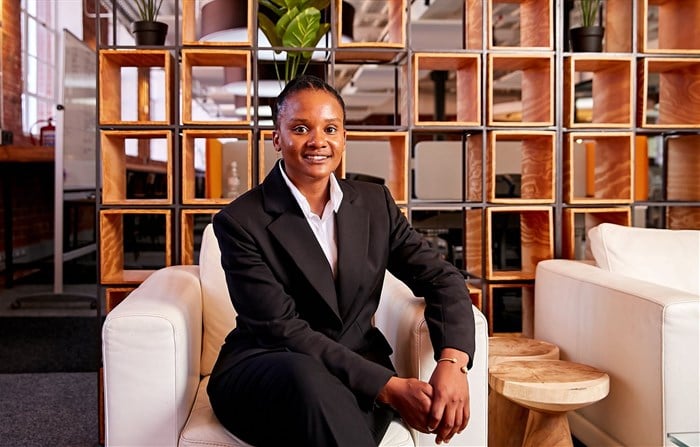Lorna Mlonzi, an entrepreneur based in Cape Town, has built an internet service provider (ISP) called Sky Internet for townships in the city. The company has been in the making for four years after Mlonzi carefully studied lower-income households' needs and the need for fast reliable internet fibre connectivity. She is a Cisco-certified network engineer and has worked for reputable telecommunications companies and ISPs such as Cell C, Vodacom, Dimension Data, RSA Web and Even Flow. I caught up with Mlonzi to find out more about her, Sky Internet, and what inspired her to build an ISP.

Sky Internet SA founder Lorna Mlonzi | image supplied
Briefly tell us about yourself and your career
I’m a 29-year-old Black female, born and raised in the townships between Port Elizabeth in the Eastern Cape and in Nyanga, Cape Town, also known as the capital of crime in South Africa.
I was raised by a single mother who was an entrepreneur herself, running a beauty salon by day and a tavern by night. She sold and ran an informal cash loan business in between.
That’s where I learnt the importance of a customer and how you can collect payments for three different services or products from the same customer. Basically, I learnt serial entrepreneurship before we even knew what it meant.
I was born in Gqheberha and have been living in Cape Town for 15 years. I graduated from the Cape Peninsula University of Technology and have 10 years of working experience working in telecoms as a senior business developer and in lead account manager roles, but I started from the bottom as a sales and customer service specialist.
I’m very passionate about technology and intentional about community development and township transformation through technology. Access to the internet has changed my life in ways I could spend an entire day explaining.
Coming from the township, it’s the survival of the fittest and if I can make it easier for the people, why not become an agent of change.
What inspired you to build an ISP?
Lack of access to information and ridiculous costs in having an internet access solution in townships. I saw a big opportunity in improving the economy within townships through technology, in particular the internet and ICT space.
Covid-19 was a rude awakening for many. Can you believe that it took Covid-19/work-from-home for ISPs to trench for fibre in the townships? Ridiculous.
There was always this notion that we can’t afford such services. Yes, perhaps we can’t, but there's a need for them and there's a growing new middle-class in townships – the young graduates in entry-level positions.
We had grown adults who see the need for a monthly fee to access the internet as opposed to endless spending on data and that’s what Sky Internet is for.
What challenges did you face in starting Sky Internet?
Nobody believed in me among friends, colleagues and even people who I was working for who are business owners, who I could have partnered with. They did not believe a Black woman is capable of founding an ISP, just because you come from a township and nobody had ever done it.
In every company I have worked for, I always made it a point to prove not only to myself but the employer, of my capabilities and how much of an asset I am with the ideas I have of using connectivity as a solution to combat not only crime but unemployment, lack of access to information and education.
There are multiple ways we can use the internet to develop our communities and people. Local business owners, investment firms, and funding institutes are all stuck in old conventional ways of doing business with other old business people within the same paradigm and hardly give opportunities to young, upcoming entrepreneurs.
I had to think of other ways to raise funds for Sky Internet and, fortunately for me, I had made the internet my best friend and had learnt about different continents, countries, currencies, etc. I found investors outside the country because inland, I faced a lot of undermining.
In what areas does Sky Internet operate?
Cape Town for now, however, we have built a nationwide area network through Tier 1 infrastructure providers like Open Serve. We are in the process of setting up teams and remote offices in different South African regions.
What future plans do you have for Sky Internet?
The future plan is to provide a low-cost and reliable internet service from Cape to Cairo and prioritise all the previously disadvantaged areas to change the narrative.
The plan is to create one unified African telco brand with roaming agreements with all service providers within the African continent - a proudly African telco company.
What trends do you predict for the ISP industry?
The ISP industry will start collaborating with big corporates to subsidise internet subscriptions for different areas to data mine for other industries and to understand communities better.
More fibre network operators will emerge, some being completely new companies and some rebrands of the same service providers and some completely new and area specific.
As an entrepreneur, what would you like to see change in the South African startup landscape?
- More cooperation amongst individuals, irrespective of race
- More trusting and open relationships
- More access to financial services
- More mentor/coaching on fundraising
What words of motivation do you have for aspiring entrepreneurs?
- Have unwavering faith
- Believe in yourself
- Be impeccable with our word
- Be curious on how things work (continuous learning)









































